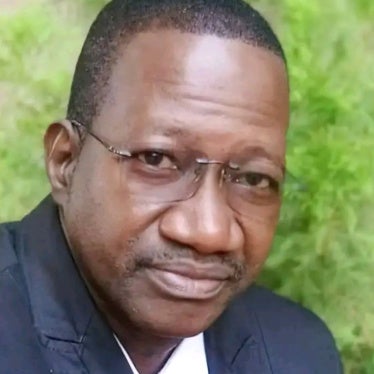Tuesday was yet another bittersweet day for journalists in Somalia. The National Intelligence and Security Agency (NISA) released Abdi Adan Guled, the editor of Xog-Ogaal, one of the country’s oldest newspapers. Abdi had been detained for three days without access to legal counsel or a hearing in court. The very same day, however, I learned that Hamza Mohamed, an Al Jazeera reporter, was arrested along with three colleagues. The four were only released today.
NISA justifies these arrests on national security grounds, accusing the media of providing a propaganda platform for the armed Islamist group Al-Shabab. More often than not the apparent goal is to silence legitimate reporting on key issues of public concern. In Abdi’s case, interrogators took issue with an October edition of the paper that reported on Al-Shabab reprisal killings in El-Ali after Ethiopian troops stationed there had withdrawn from the town.
Suggesting that journalists pose a threat to Somalia ignores their precarious situation.
Just over a month ago, Abdiaziz Mohamed Ali, known as Haji, a journalist at Radio Shabelle, was killed outside his family home in Mogadishu’s Yaqshiid district. A witness said that unidentified gunmen shot him several times. Abdiaziz died on the spot. He was the second journalist killed this year in Somalia and the eleventh Radio Shabelle reporter to be murdered. According to the United Nations, 30 journalists have been killed in Somalia between August 2012, when the government took office, and June 2016. Among colleagues, these killings and attacks have created lasting fear at a time where their skills are needed most.
The government’s promises to investigate killings of journalists ring hollow. So far, the authorities have only investigated and prosecuted attacks on journalists that were attributed to Al-Shabab.
The spokesperson for the Ministry of Internal Security told me that a NISA-led investigation into Abdiaziz’s killing is ongoing and one arrest has been made. Yet, since the day of Abdiaziz’s death, government investigators have not contacted witnesses or Abdiaziz’s relatives or colleagues, raising questions about the investigation’s credibility.
Media freedoms have been a major casualty of Somalia’s long-running armed conflict. The government needs to stop its intelligence forces from harassing and obstructing reporters. And Somalia’s international partners should be pressing the government to ensure that all those responsible for attacks, harassment, and threats against journalists are held to account.









